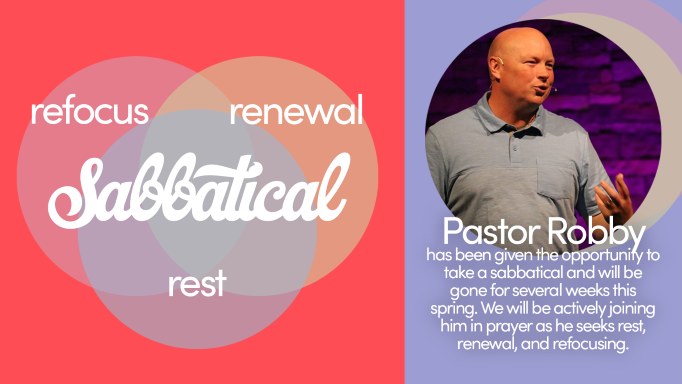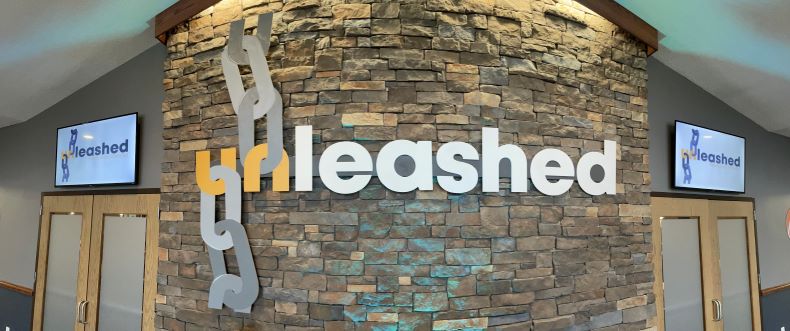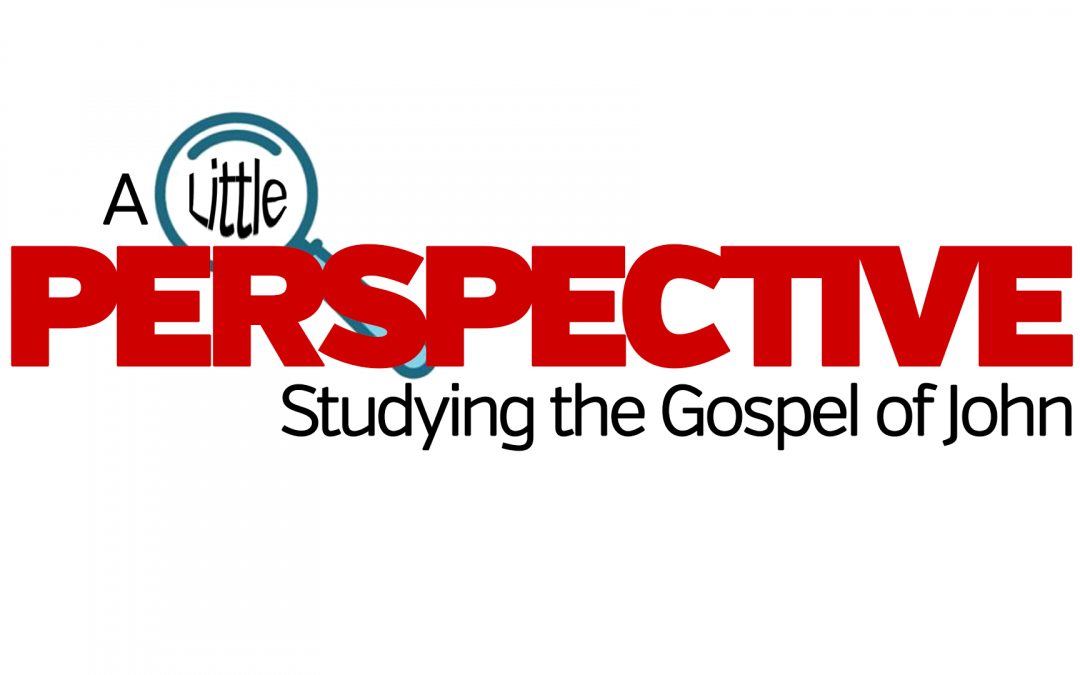
Sabbatical
Sabbatical
In the midst of my 20th year of ministry at Lawrence First Church of the Nazarene I can honestly say that my time here has been fruitful. His church has invested deeply in my family and I as I have done my best to continually live out the Lord’s calling in a purposeful manner. I have sought to invest my life—and my family’s life—in such a way that God might be glorified by our living out His calling in this local context. There have been times of great joy. There have been times of deep sorrow. We’ve found ourselves stuck in ruts and we’ve continually found ways to allow God to lead us to renewal on those mountaintops. It has been a satisfying journey to do life together as the people of LFC!
As I look toward the future of my ministry here, I believe God is preparing His church for renewed vision. I sense that He is already moving in ways that although we can sense He is somehow at work, the clarity of what the Lord is doing is still to come. It is within this state of sensing that I asked the church board to consider allowing me to take an extended time of sabbatical. To serve a church that understands the benefit of rest, renewal, and refocus for its pastors is one of the key reasons that I have been able to remain in this difficult, yet rewarding calling. Sabbatical is critical. I need it. My family needs it. His church needs it.
The purpose of sabbatical is three-fold: rest, renewal, and refocus. These things are best accomplished when one is able to step away for a time. Let me explain those purposes in a bit more detail.
REST – I plan to use this time to truly rest. Rest for me is not sleeping in, laying around, or just simply doing nothing. Rest for me is a mental break from the demands of the schedule, the urgency of the immediate, the necessity of planning, and the pattern of rearranging my family and I’s needs for the sake of the church. These are all worthy endeavors, but they are exhausting if time is not taken periodically to take a step outside of the day to day demands.
I plan to get ample rest by creating more space for things I currently do that bring me rest, but also by making room in my schedule for some new things. I plan to read more simply for enjoyment. I plan to exercise more (not really for enjoyment, but because I need to). I plan to spend more time each day just “being” in God’s presence. I will spend some time away on my own, but I also will invest more deeply into what my family is doing—making more space available to them. Simply put, I’m going to redirect the mental and physical energy that I typically reserve for the church and I’m going to temporarily steer it in another direction—for the benefit of the church.
RENEWAL – I plan to grow during this time. I believe extra rest provides room for exponential growth. My main area of focus for growth during sabbatical will be in leadership. I’ll be participating in an intensive, one-on-one leadership development course through the Burning Bush Leadership Institute. Our former pastor, Don Dunn leads individuals, teams, and corporations in Leadership seminars and training and he has agreed to invest in my leadership development.
As part of this sabbatical, I also plan to consult with other pastors and “drink deeply from the wells of wisdom” that I otherwise would not have the opportunity to do. I will attend other churches and see how they execute the various aspects of a Sunday morning worship service and other ministries. I plan to read books, listen to podcasts, watch video seminars, and truly make space to learn more about pastoring and leading the church.
With the growth, health, and well-being of the church in mind I also plan to develop a curriculum/pathway/system for Spiritual/Emotional coaching. A large portion of my day-to-day responsibilities has been focused on counseling individuals. I’ll be creating a system I can use to help individuals focus more intentionally on addressing their personal Spiritual and Emotional health. I see this as a great need and the need will only continue to grow.
REFOCUS – I believe that God is in the midst of doing something new at Lawrence First Church. I don’t know exactly what that is, but I’ve already sensed the tug to lead us to refocus on who we are and what our unique calling from God is. I’ll freely admit that this is difficult to discern when I’m fully immersed in the demands of the weekly schedule.
I want to pause. I want to gain perspective. I want to seek wisdom and discern where the Holy Spirit is leading us and craft a ministry plan for us moving forward. Perhaps this will include a refocus on our current vision, or it could be an expression of a whole new vision. I will fast. I will pray. I will seek. I will listen. I will discern. I will focus.
Thank you for being a church who cares deeply for its pastors. A healthy pastor is essential to Lawrence First Church of the Nazarene living out her Holy Spirit calling in Douglas County and the surrounding areas. Thank you for praying for me. Thank you for stepping up in my absence where needed. Thank you for trusting our board and staff to take on new and greater responsibilities while I’m away. Thank you for your continued investment in the life of the church through your presence, your giving, and your encouragement. These 12 weeks beginning Monday, February 20 have the potential to be a tremendous time of growth that will set us on an impactful course for years to come. Thank you for doing your part.
Pastor Robby






Recent Comments